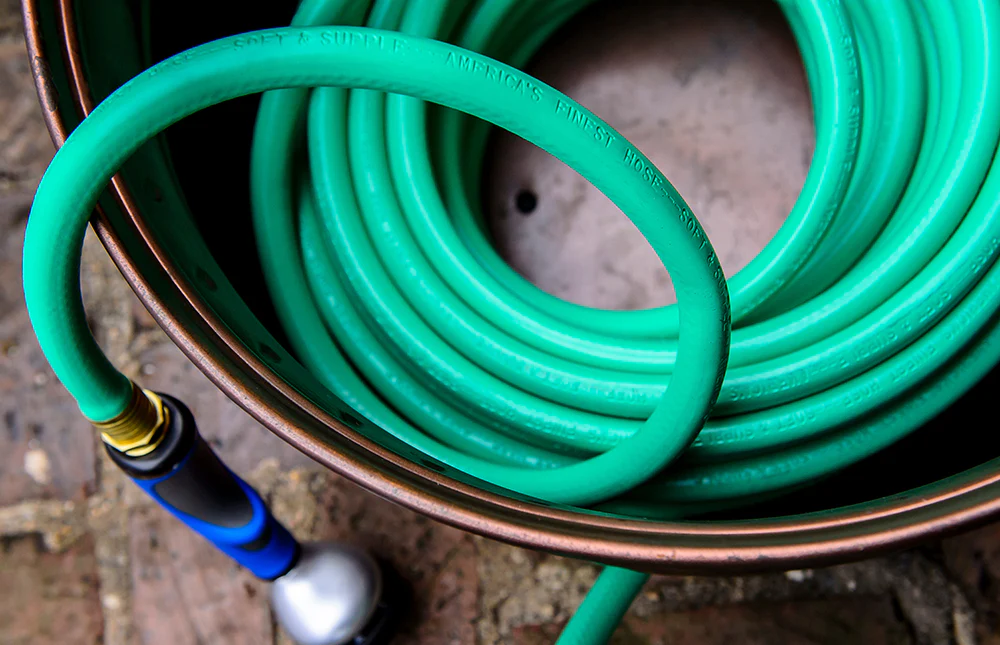
Flexible Hoses have become indispensable tools in a variety of settings, from gardening and automotive care to industrial applications. Their adaptability, durability, and ease of use have made them a preferred choice for many homeowners and professionals alike. In this comprehensive guide, we’ll explore the features, benefits, and various applications of flexible hoses, ensuring you understand why they are much more than just a simple plumbing accessory.
What Are Flexible Hoses?
Flexible hoses are tubes designed to convey liquids or gases. Unlike rigid pipes, which maintain a fixed shape and size, flexible hoses can bend, twist, and stretch while still retaining their integrity. They are typically made from materials like rubber, PVC, or reinforced fabric, designed to withstand pressure, temperature changes, and wear over time. Their flexibility allows for easier handling and installation, making them a versatile solution for numerous applications.
Key Features of Flexible Hoses
- Durability: Most flexible hoses are built to withstand high pressure and harsh environmental conditions. Reinforced materials can resist abrasion, UV rays, and extreme temperatures, ensuring a long lifespan.
- Lightweight and Portable: Flexible hoses are much lighter than traditional rigid pipes, making them easy to transport and maneuver. This feature is especially beneficial for gardeners and those working in tight spaces.
- Kink and Tangle Resistance: Many modern flexible hoses are designed to be kink-resistant, preventing frustrating tangles and ensuring a consistent flow of water or other fluids.
- Expandable Designs: Some flexible hoses are expandable, allowing them to stretch up to three times their original length when in use. Once the water is turned off, they retract back to a compact size for easy storage.
Benefits of Using Flexible Hoses
- Versatility: Flexible hoses are suitable for a wide range of applications, including gardening, automotive care, home improvement, and industrial use. Their ability to adapt to various tasks makes them an invaluable tool in any setting.
- Ease of Use: The lightweight and flexible nature of these hoses means they can easily navigate around obstacles, making watering plants or cleaning vehicles a breeze.
- Cost-Effectiveness: Investing in high-quality flexible hoses can save money in the long run by reducing water waste and minimizing the need for repairs or replacements. Many hoses come with features that optimize water flow, further enhancing efficiency.
- Environmental Impact: By reducing water wastage and using materials that can withstand wear and tear, flexible hoses contribute to more sustainable practices in gardening and landscaping.
Applications of Flexible Hoses
- Gardening and Landscaping: Flexible hoses are ideal for watering gardens, lawns, and flower beds. Their lightweight nature allows for easy maneuverability, and many come with adjustable spray nozzles for various watering needs.
- Automotive Care: In garages, flexible hoses are used for washing cars, connecting pressure washers, and supplying water for cooling engines. Their flexibility makes it easy to access different areas of the vehicle without hassle.
- Home Plumbing: Flexible hoses are commonly used to connect washing machines, dishwashers, and other appliances to water supply lines. They simplify installation and repair processes, allowing for quick adjustments when necessary.
- Industrial and Commercial Use: In factories, restaurants, and construction sites, flexible hoses play a crucial role in transporting liquids and gases, cleaning equipment, and managing water supply systems. Their durability and adaptability make them suitable for demanding environments.
Choosing the Right Flexible Hose
When selecting a flexible hose, consider the following factors:
- Material: Choose a hose made from durable materials that suit your specific needs, whether it’s for gardening, plumbing, or industrial use.
- Length: Measure the distance you need to cover to ensure you select a hose long enough for your application without unnecessary excess.
- Diameter: The hose diameter will affect water flow and pressure; ensure you choose a size that meets your requirements.
- Features: Look for features such as kink resistance, expandability, and included accessories (like spray nozzles) that enhance functionality.
Conclusion
Flexible hoses are more than just a convenient solution for watering plants or washing cars; they are versatile tools that can enhance efficiency in various applications. Their adaptability, durability, and ease of use make them essential in gardens, homes, and industries alike. By understanding the features and benefits of Flexible Hoses , you can make informed choices and maximize their potential in your everyday life. Whether you’re a gardener, a DIY enthusiast, or a professional, investing in flexible hoses can simplify your tasks and improve your efficiency—making them a must-have in any toolkit.